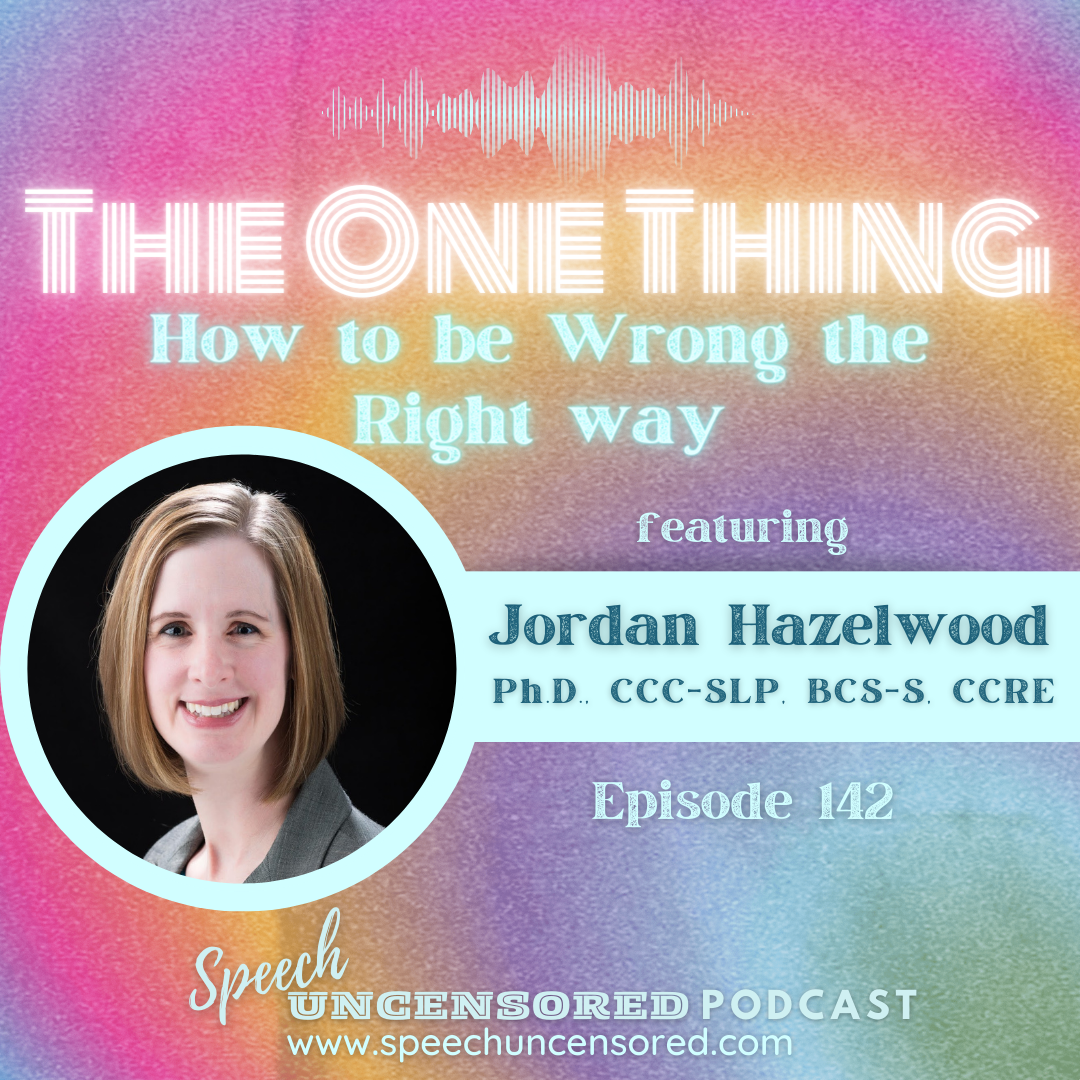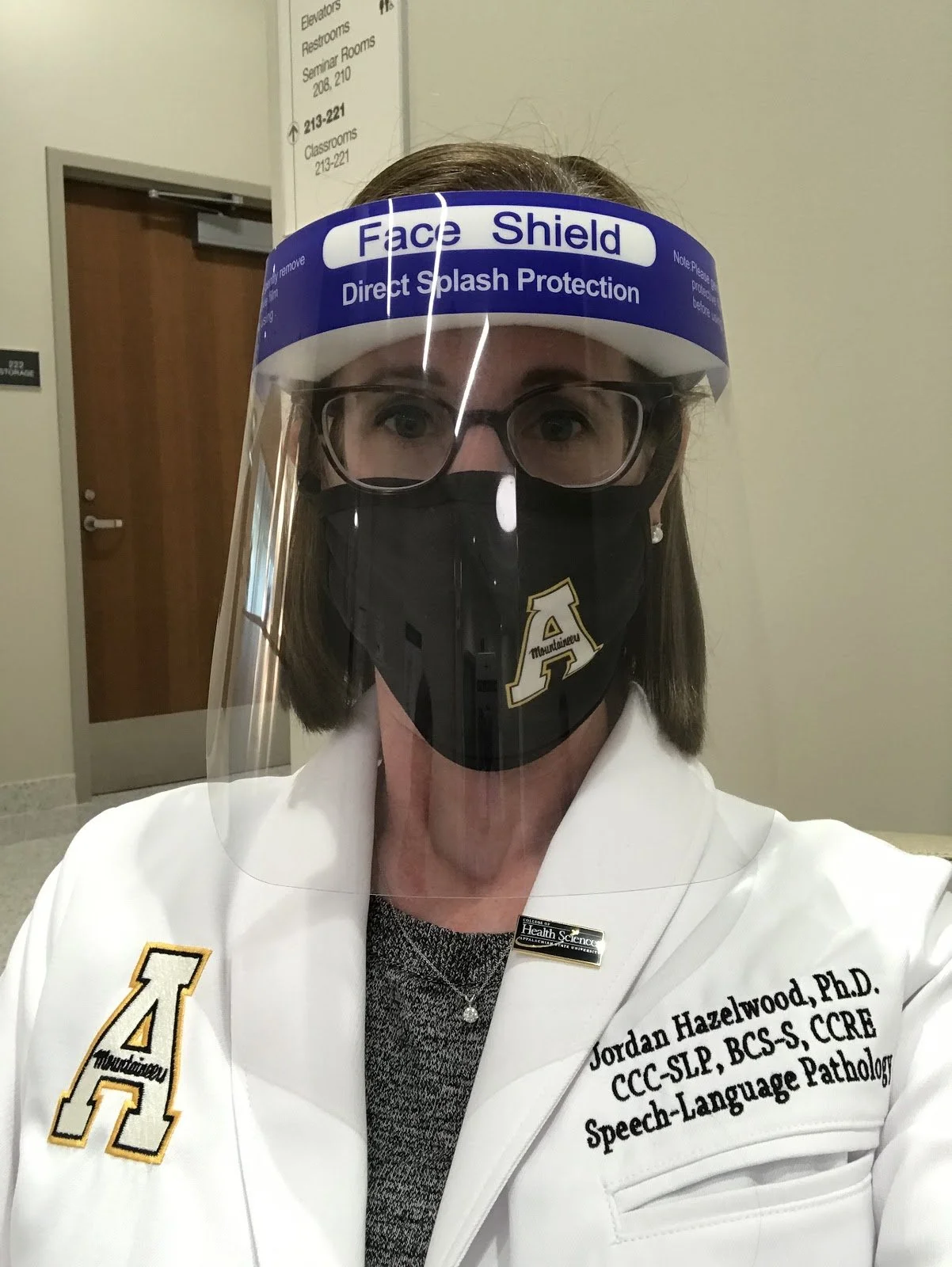142: The One Thing: How to be Wrong the Right way with R. Jordan Hazelwood PhD, CCC-SLP, BCS-S, CCRE
As we learn, mistakes are expected. However, as SLPs in-training, we are also expected to maintain professional communication and be open to critique. Learning how to be wrong in the right way can help build your confidence while allowing you to develop professionally.
Key Takeaway:
It can be hard to be wrong, especially when learning. But, being wrong in the right way can preserve your confidence and give you space to develop professionally.
Resources
Hardavella, G., Aamli-Gaagnat, A., Saad, N., Rousalova, I., & Sreter, K. B. (2017). How to give and receive feedback effectively. Breathe, 13(4), 327-333
Ho, D. W., & Whitehill, T. (2009). Clinical supervision of speech-language pathology students: Comparison of two models of feedback. International Journal of Speech-Language Pathology, 11(3), 244-255.
Heckman-Stone, C. (2004). Trainee preferences for feedback and evaluation in clinical supervision. The Clinical Supervisor, 22(1), 21-33.
You can connect with Dr. Hazelwood through IG, Linktree, and LinkedIn @drhazelwoodslp or via email hazelwoodrj@appstate.edu
Thanks for these great resources, Jordan!
R. Jordan Hazelwood, Ph.D., CCC-SLP, BCS-S, CCRE is an Assistant Professor in the Department of Communication Sciences and Disorders at Appalachian State University in Boone, NC. Before completing her Ph.D. in Health and Rehabilitation Sciences at the Medical University of South Carolina in Charleston, SC, she worked as a speech-language pathologist specializing in the assessment and rehabilitation of adults with swallowing disorders and traumatic brain injury. She is a Board Certified Specialist in Swallowing and Swallowing Disorders, has served as the Professional Development Manager for ASHA’s Special Interest Group in Swallowing and Swallowing Disorders (SIG 13), and has earned fellowships in Clinical Research Ethics and Interprofessional Education. Dr. Hazelwood teaches Dysphagia, Voice & Resonance Disorders, and Neuroanatomy & Physiology to graduate and undergraduate students. Her research focuses on the training and education of clinicians and students in dysphagia management while considering the impact of standardization procedures, physiologic dysfunction, and quality of life on health outcomes.
REVIEW the podcast
You’ll earn my undying gratitude by leaving a review on Apple Podcasts! Reviews help other SLPs find the podcast. Also, I love reading your feedback! Just click here to review, select “Ratings and Reviews” and “Write a Review,” and let me know your favorite part of the podcast. Malaho plenty!












